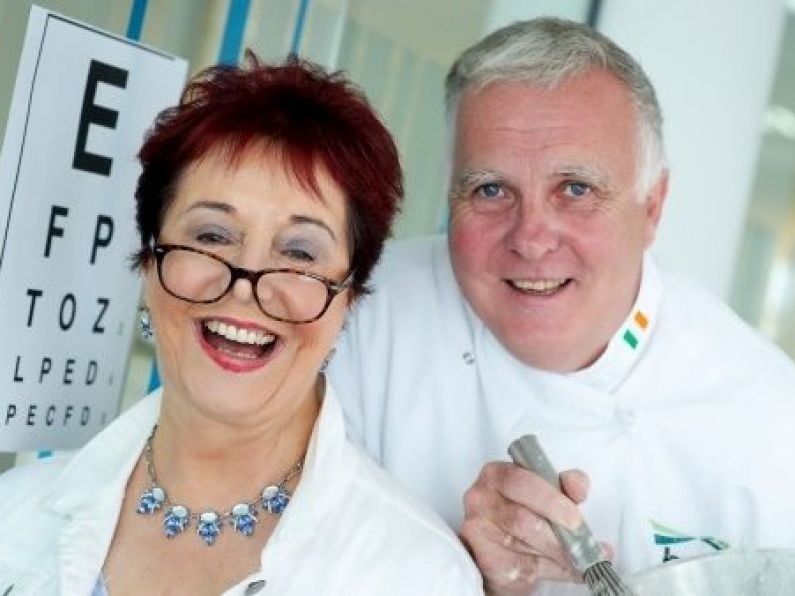Starting a new career in your mid-50s can deliver an inspirational new lease of life, says Niall Murphy, who is enjoying a fulfilling career as a culinary instructor.
Niall was in his 50s when he decided to leave his management role after 27 years in the motoring industry, a global role which took him to the USA.
While there, he met people with a different view on their relationship with their career choices.
“In Ireland, many of us thought we’d stay in the career we were in until they carried us out of it in a box,” said Niall.
“When I was in the States, I found myself working with people in the motor industry who had previously been dentists or other unrelated careers.
“Americans don’t believe in staying in just one career. They’re more willing to embrace change.
"I was working in motors for 27 years when I decided to retrain as a chef. It proved to be a great move. It really has been a new lease of life.”
Niall currently works as a culinary instructor with the Kildare and Wicklock Education and Training Board (KWETB).
The career switch was quite a journey. While he had been a manager, he had never gone to college.
“People my age often want to change careers, but they shy away from actually doing it,” he said.
“I’d advise people to do your homework, decide what you want to and then go after it.
“I’d never been to college. I really surprised myself with the whole upskilling and retraining. I’d encourage anyone in their mid-50s to give it a go.”
Niall is one of the success stories who have told their career stories as part of a new report on the age profile of the Irish workforce.
The report was produced by the national further education and training authority SOLAS.
Another to tell her personal story was mother-of-four Betty Kelly, who works part-time as an optical receptionist because she loves the job, but also because she won’t have an occupational pension.
The report found that the overall workforce participation rate for people in the 50- to 59-year-old cohort has increased by almost 5% (from 70.9% in 2008 to 75.3% in 2018), driven by an increased number of females in employment.
The report also looked into the education levels of older workers. Of the 425,000 persons employed aged 50 to 59, 41% had an upper secondary education.
Of those in employment with a third level qualification, two thirds had gained their qualification before 2000.
The report also looked into those aged 60 and older. Of this age group, 22% of the population were in employment in 2018.
Breaking this down further: 61% were male; just over 38% were self-employed; Agriculture, health and wholesale/retail were the sectors with the most people in employment aged over 60.
“Females accounted for a lot of the rise of people returning to work in the 50/59-year-old group,” said Joan McNaboe, manager of the Skills and Labour Market Research Unit (SLMRU) with SOLAS.
“We’d put a lot of that down to women returning from caring for children or parents.
“When we look at the share of people over 50 in employment, we find that half of the people who have a third level education, their studies were completed pre-1994. That is a long time ago.
We believe that lifelong learning is key across the board for people’s career options.
"We see that the older categories are less likely to engage with career change and with ongoing education. That can leave people in a vulnerable position.”
In terms of education in the 50/59 cohort, 45% (84,300) of females in employment had a third level qualification versus 37% (88,900) of males.
The share of persons with a further education & training (FET) qualification was 16% for both males and females, while there was a higher portion of males than females with an upper secondary qualification or less.
The SOLAS report predicts that technological change is going to have an impact on those employed in certain sectors in the coming years, namely the elementary, administrative, sales and operative roles.
Just over a third of the population aged 50 to 59 are employed in these occupations, and measures must be put in place to ensure that workers are given opportunities to reskill.
“This is about ensuring that people who want to stay on working can do so,” said Joan McNaboe.
Nobody enjoys biding their time in work. People want to feel relevant and that they are still valued.
"Niall Murphy is a great example who prolonged his working life by changing career.
“I think that the current younger generation are more likely to be open to changing career paths.
"The current generation of younger worker realise that they don’t have a ‘job for life’.
"They will continue to see significant change, and most will have a significant career change two or three times in their working life.”
Betty Kelly, 71, who works as an optical receptionist, with Niall Murphy, a culinary instructor, who retrained as a chef after 27 years in the motor industry. Both feature as part of a SOLAS into the labour market of older workers.






